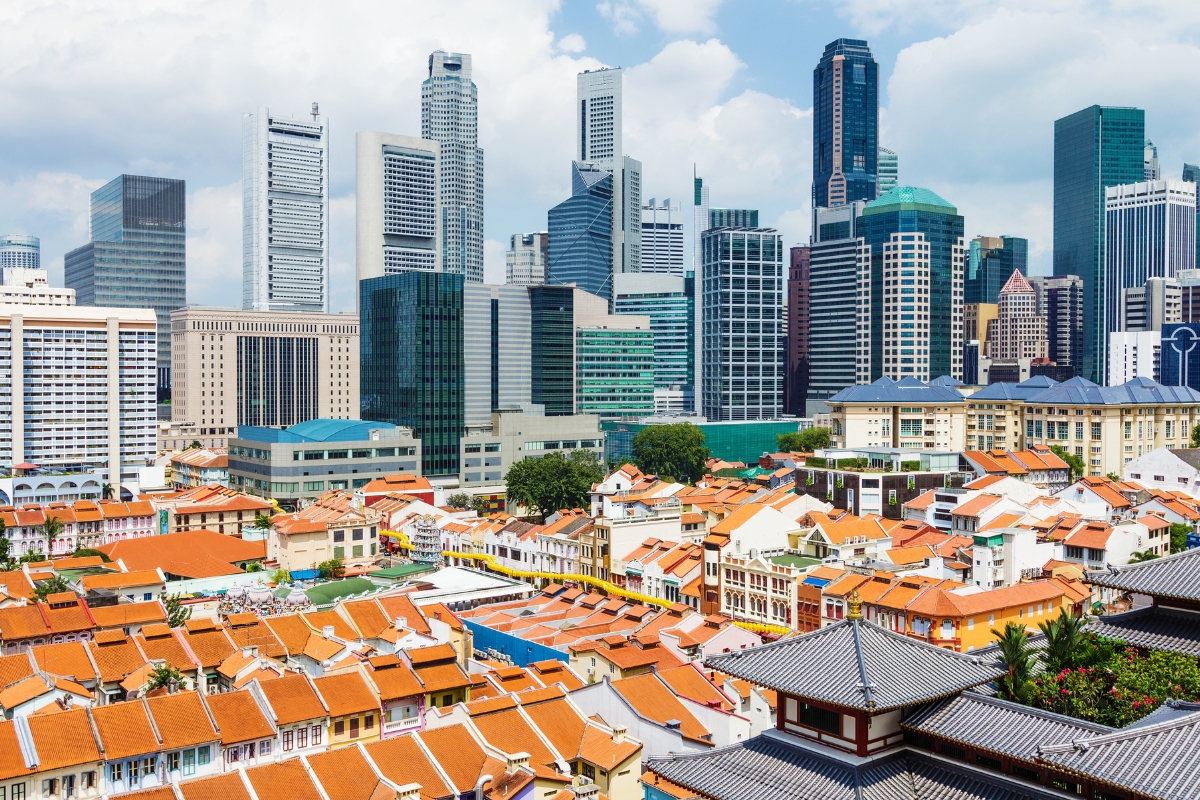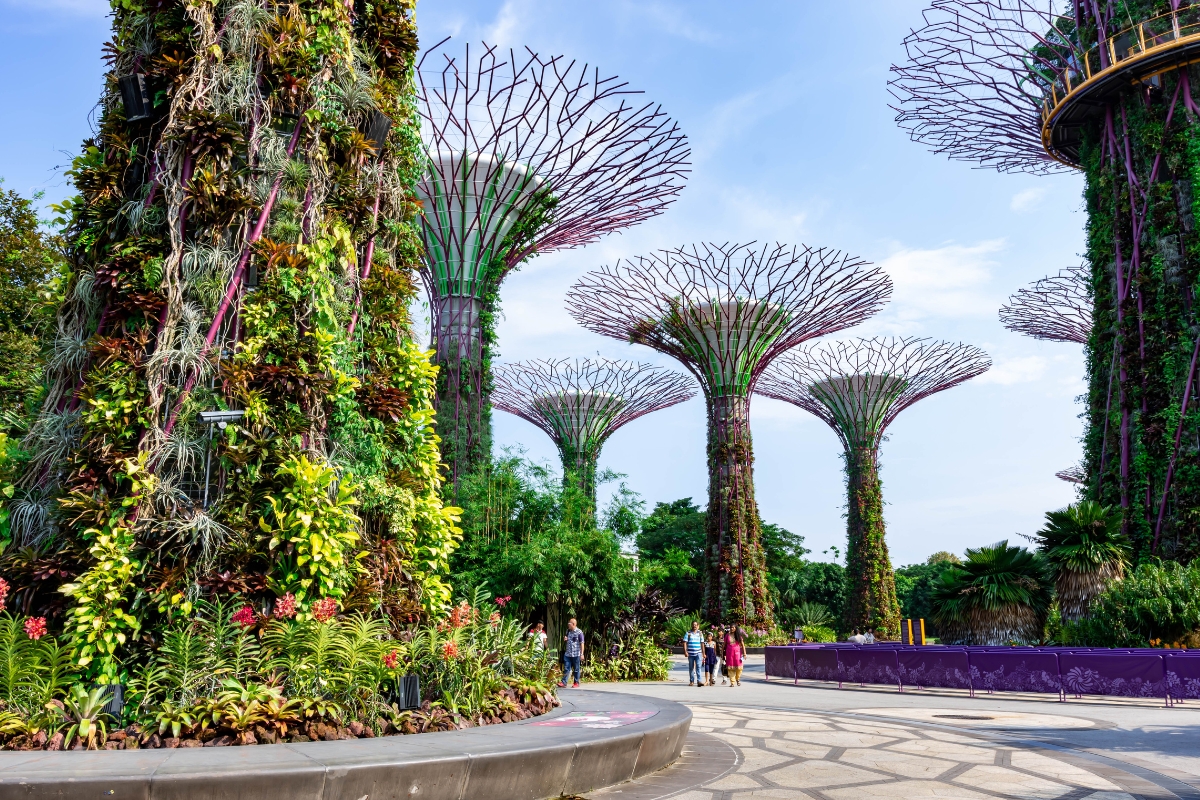New Choice for Asian Study Abroad: Malaysia vs Singapore, Who Comes Out on Top?

Amidst the wave of studying abroad in Asia, Malaysia and Singapore have become the top choices for many students due to their unique geographical locations, high-quality educational resources, and rich cultural backgrounds.
Although these two countries are neighboring, they each have their own unique charm in terms of education, culture, and lifestyle.
So, faced with these two study abroad destinations, how do you choose?
Common Ground
01 Language Environment
Both Malaysia and Singapore are English-speaking countries, and they have a large Chinese population, making communication in Mandarin hassle-free.
In such an environment, international students can not only improve their English proficiency but also gain deep insights into the local culture and experience the charm of multiculturalism.
02 Climate Environment
Both countries have a tropical rainforest climate, with high temperatures and rainfall throughout the year, providing a pleasant climate for living and studying.
Moreover, both countries have abundant natural landscapes and cultural heritage, providing excellent living and learning environments for students.
03 Recognition of Education
Higher education in both Singapore and Malaysia is recognized by the Chinese Ministry of Education, and degrees obtained after graduation have equal validity in China.
This means that regardless of which country you choose to study in, you can obtain a recognized degree upon returning to China.
Differences
04 Academic System Differences
Although the undergraduate academic systems of both countries are similar, there are differences in the master’s degree programs.
Singapore:
Master’s degrees in Singapore are divided into coursework-based and research-based, with a shorter duration, typically taking 1-1.5 years to complete.
Malaysia:
Master’s degrees in Malaysia are divided into coursework-based, mixed, and research-based, with a relatively flexible duration that allows students to choose different programs according to their needs.
05 Study Abroad Costs
Singapore:
The cost of studying abroad in Singapore is relatively higher than in Malaysia, with annual tuition fees for undergraduate programs at public universities ranging from approximately 45,000 to 65,000 RMB.
Singaporean public universities offer scholarships to foreign students, but there may be limitations on employment opportunities after graduation. Additionally, Singapore also offers interest-free tuition loans to international students.
Malaysia:
The cost of studying abroad in Malaysia is relatively lower, with annual tuition fees for undergraduate programs at public universities ranging from approximately 10,000 to 20,000 RMB, and master’s degree tuition fees ranging from 20,000 to 40,000 RMB.
For students with limited financial means, Malaysia is undoubtedly a more cost-effective choice.
06 School Rankings
Singapore:
The National University of Singapore (NUS) and Nanyang Technological University (NTU) in Singapore have performed well in international rankings, ranking 8th and 26th, respectively, in the QS World University Rankings.
Malaysia:
Malaysia’s top five public universities lag slightly behind in QS rankings, with the University of Malaya ranking 65th.
Both countries have world-class universities and educational resources, providing students with high-quality education and development opportunities.
07 Cultural Differences
Singapore:
Singapore is heavily influenced by Western culture, emphasizing individualism, efficiency, and discipline.
Malaysia:
Malaysia, on the other hand, places more emphasis on collectivism, tradition, and cultural diversity.
08 Cost of Living
Singapore:
As a modern metropolis, Singapore has a fast-paced lifestyle and a relatively high cost of living.
In Singapore, accommodation costs approximately 2,500 to 6,000 RMB per month. With additional daily expenses such as food, transportation, etc., the annual cost of living is approximately 80,000 RMB.
Malaysia:
Malaysia boasts more natural landscapes and cultural heritage, with a relatively slower pace of life and lower cost of living.
International students can choose a lifestyle that suits their preferences and needs.
09 Visa Procedures
Both Malaysia and Singapore have clear and fair visa application processes.
However, there are subtle differences in the speed and convenience of visa processing between the two countries.
Malaysia:
The visa application process in Malaysia may take longer to complete, mainly due to the rigorous and complex review process.
Despite this, the entire process is still very clear, providing clear guidance for applicants.
Singapore:
Visa processing in Singapore is usually faster. In general, as long as the documents are complete and meet the requirements, most applicants can obtain their visas within a few weeks.
Singapore Student Pass
The Singapore Student Pass, also known as the Student’s Pass, is provided to international students who plan to pursue full-time studies in Singapore.
This pass not only allows the holder to stay in Singapore but also serves as a multiple-entry permit.
01 Validity of the Visa
The validity of the visa depends on the length of the student’s course, ensuring the student’s legal status throughout the entire course of study. For students who require a visa to enter, it is recommended to submit the application at least two months before the course start date.
02 Application Process
Prepare application materials: passport, visa application form, school confirmation letter, etc.
Submit the application: Submit the application to the Immigration and Checkpoints Authority (ICA) of Singapore.
Collect the Student Pass: After arriving in Singapore, follow the guidance of the ICA to collect the Student Pass at the Immigration Office.
Malaysia and Singapore each have their own advantages in studying abroad.
Singapore offers high-quality education but relatively high study abroad costs;
while Malaysia has lower study costs and flexible academic systems.
Furthermore, the two countries also differ in terms of culture, lifestyle, and other aspects.
Therefore, the choice of country should be based on individual needs, financial strength, and career plans.
Regardless of which country you choose, adequate preparation is necessary to make the most of the study abroad opportunity and lay a solid foundation for your future career.
RECENT POSTS




The Journey of Studying Abroad in Singapore

Challenges of Studying Abroad in Singapore

Tips for Studying Abroad in Singapore

